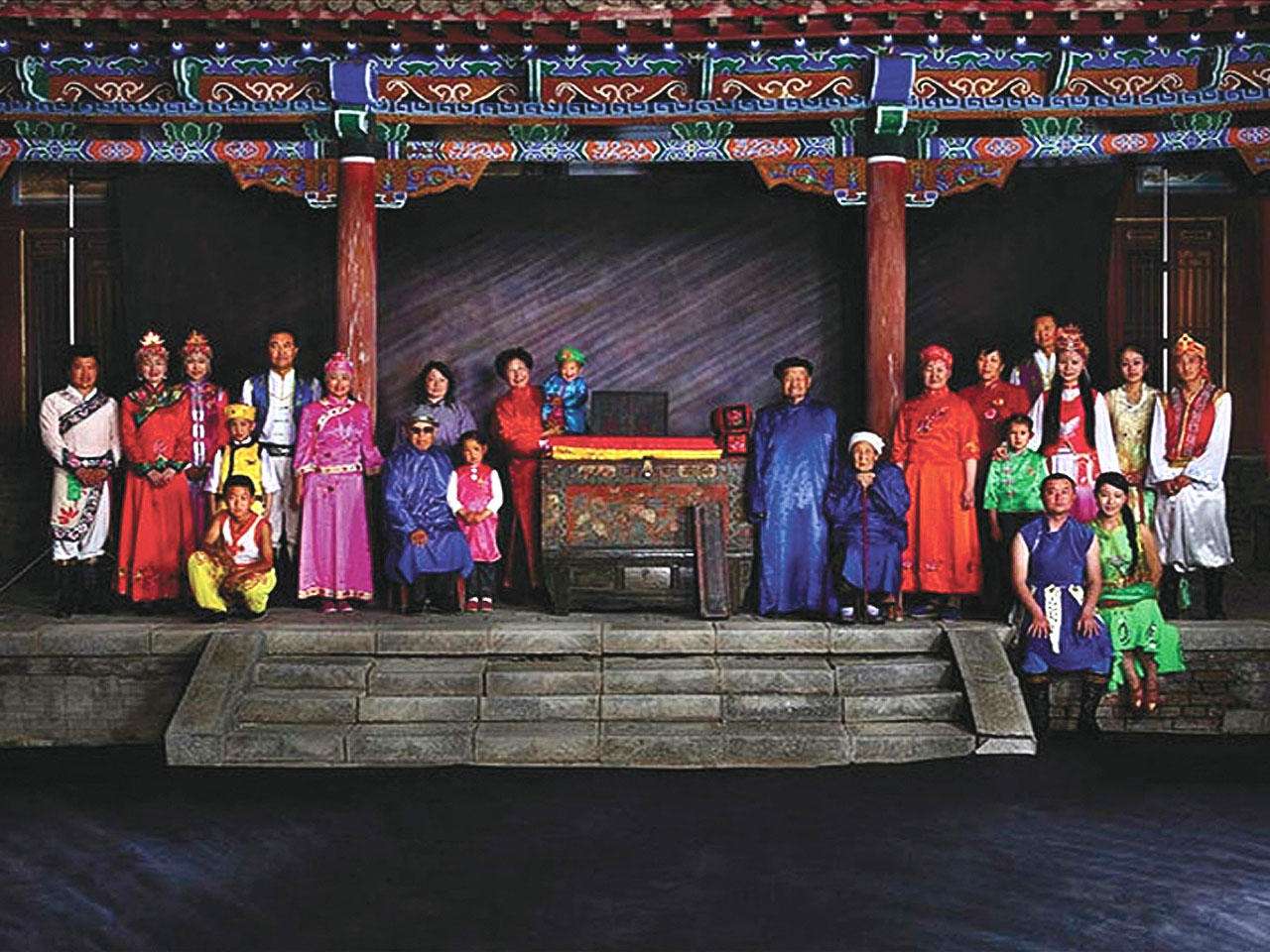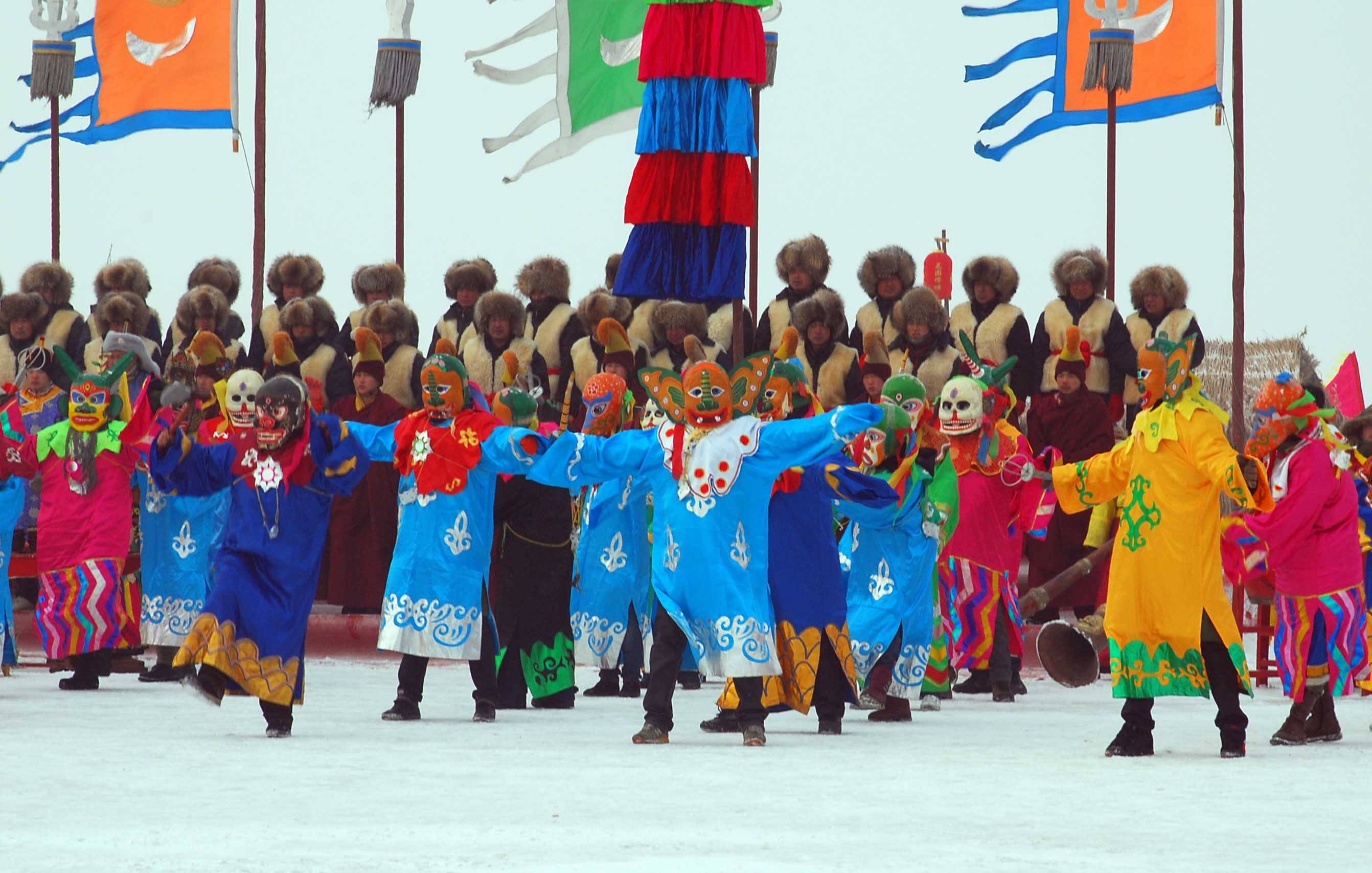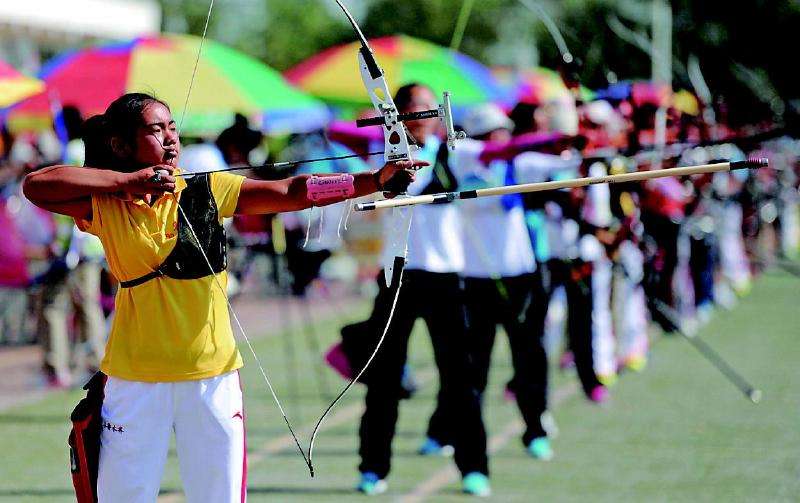
In the mid-18th century, the Qing Court ordered to move the Xibo people from northeastern China to Xinjiang to consolidate and reinforce the northwestern border defenses. These Xibos settled down in the Ili River Valley and made this area their second hometown. With a population of 36,000 in Xinjiang Uygur Autonomous Region, most of the Xibo people live in the Qapqal Xibo Autonomous County and Huocheng County and Gongliu County. The Xibo language belongs to the Manchu - Tungusic Group of the Altaic Language Family. In 1947, Xibo language took the Manchu writing system as the writing system, which has been used as a writing system of the official language until now.
Xibo people believe in Shamanism and Tibetan Buddhism and they are pious worshippers of ancestors. In clothing, the Xibo men like suits and short jackets with buttons down the front, with the trousers tightly tied around the ankle while women in Xinjiang like close-fitting long gowns reaching the instep.

Rice and flour are staples for the Xibos. The Xibos in Xinjiang like tea with milk, butter, cream, cheese and other dairy products. It is a taboo to eat donkey meat, horse meat and dog. Xibos have a very special kind of pickles called Hatuhunsuoji or Huahuacai. In autumn, they would pickle cabbage, leek, carrot, celery and hot pepper and store them for spring and winter. A traditional Xibo dish “whole sheep”, which is a kind of dishes in the bowls, which is made with a sheep heart, liver, lung, bowel kidney, tongue, eyes, ears, stomach, trotter and blood. A dish with soup can be cooked by the chopped stuff and separated to 16 bowls.
The Xibo women are good at paper-cutting and paper-pasting. Arrow takes an important role in Xibo people's life and archery is a must for fishing and fighting in ancient times. At present, archery is one of the favorite sports among Xibos. Besides, there are a lot of excellent Xibo arches. On the April 18th on the lunar calendar is the festival of the Xibos, marking the successful conclusion of their ancestors' migration westward. They also celebrate the Spring Festival, Qingming Festival, Duanwu(Dragon Boat Festival) and Mid-autumn Festival.




